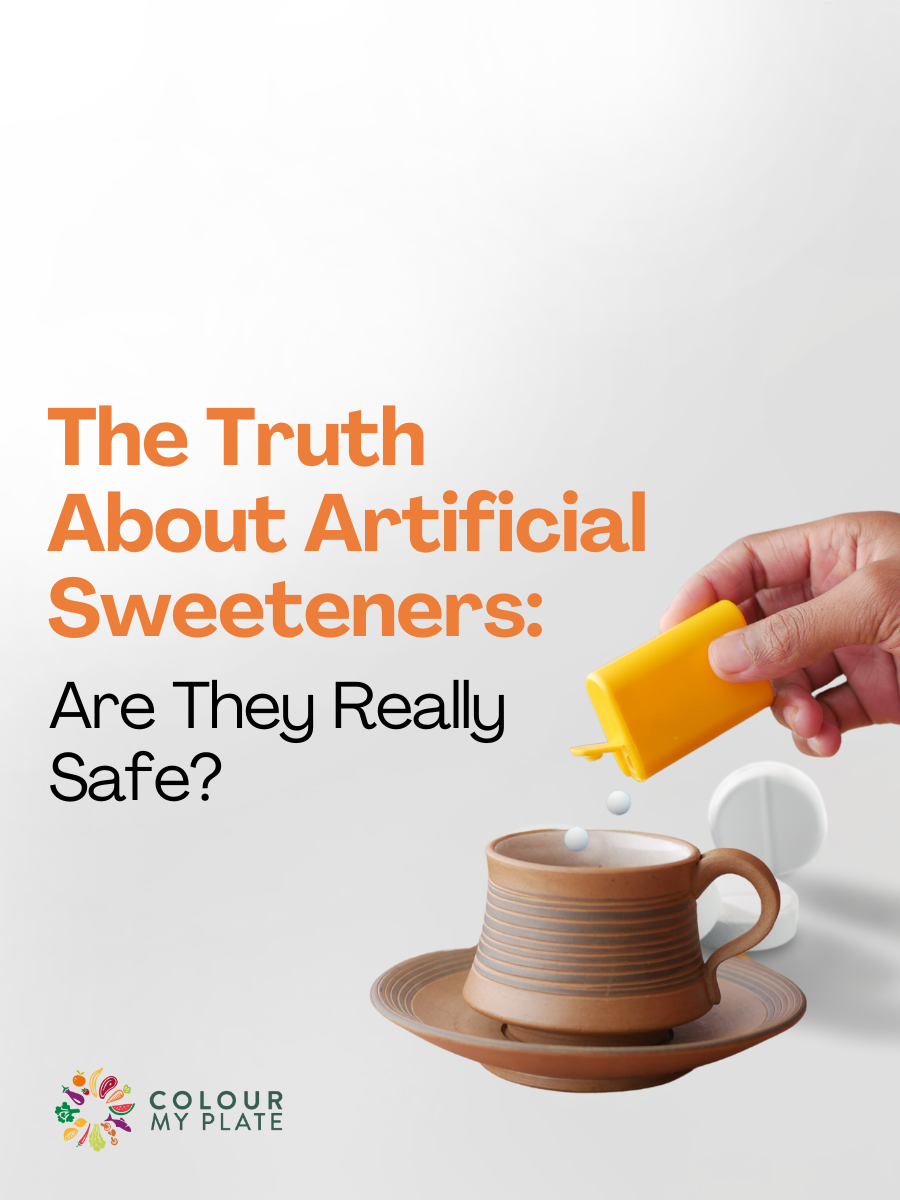
![]() 1 Jan 2025
1 Jan 2025
Artificial sweeteners are synthetic sugar substitutes designed to imitate the sweetness of sugar while providing little to no calories. Common examples include aspartame, sucralose, and stevia. These sweeteners have become staples in many households and restaurants, often used in diet foods and beverages.
Artificial sweeteners come from a variety of sources, and here are two of the most common types:
One of the biggest reasons people turn to artificial sweeteners is because they contain little to no calories. Unlike regular sugar, which has about 4 calories per gram and can spike blood sugar levels, artificial sweeteners do not raise blood glucose. This makes them especially appealing for people managing diabetes or anyone looking to cut down on calories without sacrificing sweetness.
Pros
Cons
Health authorities like the FDA and WHO consider these sweeteners safe for most people when consumed within acceptable daily limits. It varies as some people may experience digestive discomfort or have a preference for the taste of natural sugars.
Artificial sweeteners can be part of a healthy, balanced diet, especially for those seeking to lower sugar intake, manage weight, or control blood sugar levels. They are particularly beneficial for diabetics. However, moderation is crucial. It’s always best to listen to your body and consult a healthcare professional if you have concerns about incorporating these sweeteners into your diet.

We noticed you haven't completed your delivery details.

Your message is sent